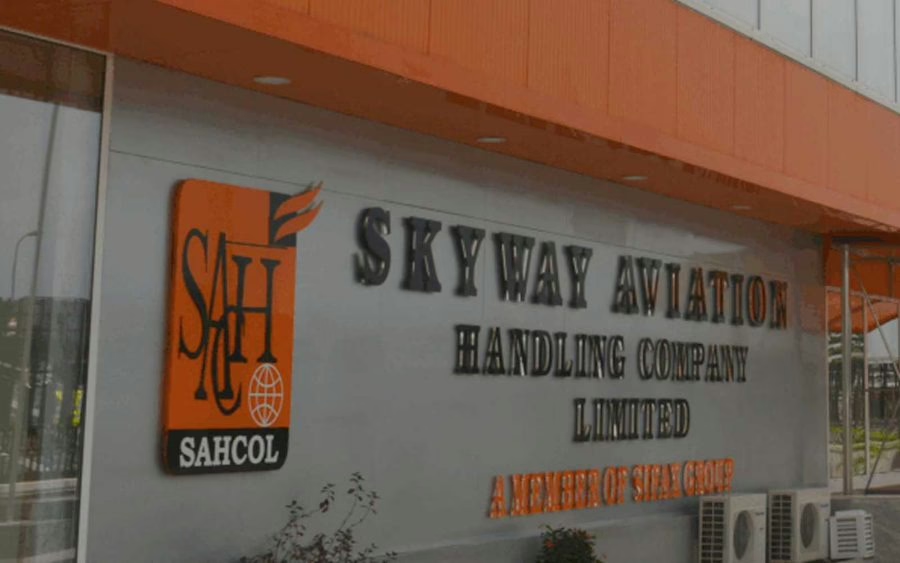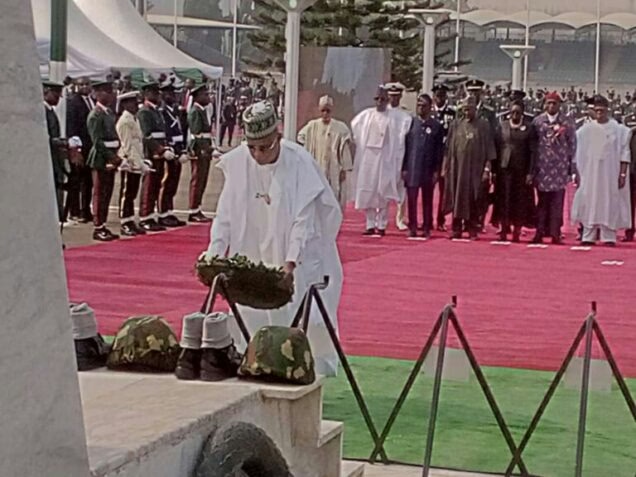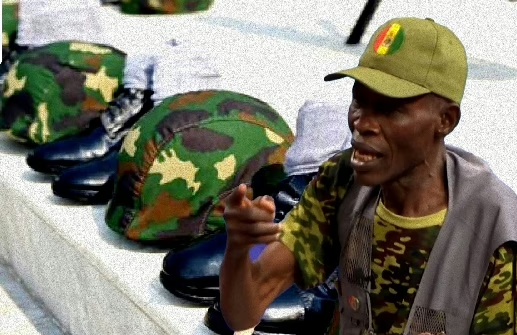a rainy Monday evening at the traffic stop by the Abraham Adesanya area of Ajah, in the Eti-Osa Local Government Area, as the traffic light indicated red, two miniature commercial buses popularly known as korope, sped past, almost colliding with vehicles coming from the opposite side, where the light had indicated green.
Our correspondent, who was worried after witnessing a near miss that could have resulted in fatalities, visited the area and other neighbouring places to further observe if such incident was rampant, and efforts were made to arrest and penalise erring commercial drivers that flout traffic rules.
His findings showed that breaking traffic rules had virtually become a norm on the stretch.
Speaking to on how impatience propels motorists to violate traffic regulations, a commercial driver in the area, Christopher Macaulay, said, “I don’t take the risk of speeding past a red light. I have patience and I always obey traffic rules, but you know some other bus drivers don’t obey traffic lights at all because they are always in a hurry.
“Even when the light stops them, some of them will still pass but other drivers have the patience to wait till the light turns green. Sometimes, the police are not there, but the LASTMA officials are always there and they will warn you at first when you break a rule.
“But if the police get a hold of anybody they usually make an arrest. I have seen many drivers get arrested by the police in some other areas like the Lekki and Jakande area for traffic offences, but here in Ajah and Abraham Adesanya, it’s a little bit easy for drivers to escape.”
Christopher added that not all commercial drivers renew their vehicle’s documents after the first registration, noting that sometimes, this might be the reason why they are in a hurry to pass through traffic stops to evade arrest.
“Normally, it’s a must to do it when you first register your car but after that, many of the drivers don’t renew again. Sometimes, even till the bus gets old, they don’t get to renew their documents again,” he added.
Reputed to be one of the most congested cities in the world, over 1.6 million cars ply Lagos roads annually. One of the drawbacks arising from this is the challenge of effective transport management.
In an attempt to tackle this, President Sir, Bola Tinubu, the then Governor of Lagos State, established the Lagos State Traffic Management Authority on July 15, 2000.
LASTMA, which is officially 23 years old, was meant to enforce traffic laws by ensuring compliance of motorists with the Lagos State Transport Sector Reform Law (2018) as amended.
Traffic officials were mandated to transform the state transportation system by ensuring a free flow of traffic on all Lagos roads, and most importantly, enforcing traffic rules and regulations.
However in spite of the extant laws, many commercial motorists, alongside tricycle and motorcycle riders flagrantly break traffic rules.
Findings by showed that an average commercial motorist in the state is short-tempered, aggressive, and hostile. They fail to obey traffic lights and sometimes stop in the middle of the road to pick up passengers.
Others disobey traffic personnel, drive against the traffic, make turns at undesignated points, and refuse to renew their vehicle documents.
Many commercial drivers tend to ignore road markings, barricades and bollards, bypassing them with ease and often engaging in vituperations with other road users.
It was gathered that not only do traffic officials and security personnel (policemen) attached to them often look the other way when these commercial motorists commit traffic infractions, but it was also noted that the general impression among these drivers is that they are exempted from traffic laws and regulations, and could easily bribe their way if apprehended.
In some cases, when a law enforcement official sits beside the driver of a commercial vehicle, there is a mutual understanding that implies that the driver would not be made to face the consequences of breaking the law.
Speaking with our correspondent, a commercial bus driver, simply identified as Abbas, said he sees waiting at traffic stops as a complete waste of time and fuel.
He admitted to always making U-turns at undesignated points but noted that he often bribed his way if arrested.
“I do pass red lights many times and I don’t get caught. Sometimes I’d throw money on the ground for them, or just apologise and I won’t give them money. This is Lagos; fuel is expensive so I don’t want to waste my time because time is money,” he said, defending his actions.
Closely parked behind Abbas was another driver who gave his name only as Anthony.
Anthony, who relocated from Abia State and has lived in Lagos for over six years, told , “We know how Lagos is, everybody is a big man’s friend so even if police catch them, they will call somebody for assistance and they will sort it out.
“Lagos is corrupt and it’s only the poor people that suffer from the law. I have broken traffic rules several times and I always have it sorted out. When I have an officer seated on my bus, nobody can stop me. Everybody just wants to eat.”
Conversely, private car owners are at the receiving end when apprehended by traffic officers for traffic infractions and are either made to pay fines, have their vehicles impounded, or serve minor prison sentences.
Narrating her ordeal, an entrepreneur, Mrs Bunmi Soyoye, said she was arrested by LASTMA officials when she parked her car to confirm an address on a map.
“I parked my car and wanted to check the address my Google map was showing me. Suddenly, I heard a knock on my side window and looked up to see two LASTMA officials. When I wound down my glass, they told me that I violated the traffic law.
“Interestingly, as two of them were arguing with me, a commercial bus coming out from a turning was not driving properly. They deliberately turned a blind eye to that. It was really annoying,” she lamented.
Condemning what she described as double standards adopted by traffic officials, a motorist, Moses Olabanji, said, “Many times, you will just see LASTMA looking at these commercial drivers. They won’t even do anything to stop them because the drivers would have thrown money on the road for them to pick.”
Drawing attention to the dangers of not evenly enforcing traffic rules, Olabanji said several lives have been lost to such laxity.
“I once witnessed a terrible accident caused by a commercial bus driver that drove past a red light. He couldn’t apply his brakes on time when he was faced by an oncoming vehicle. It is only private car owners that the LASTMA officers always have time to arrest.”
In July 2022, reported how a group of police officers and LASTMA officers stationed by the traffic light at the Isheri-Berger area of the state were caught in an extortion scheme.
The group mainly extorted motorists by taking those arrested to a Point of Sale operator to withdraw money, after which they were released regardless of the gravity of the offences committed.
Our correspondent gathered that traffic violators who refuse to part with money may eventually forfeit their vehicles, which are usually auctioned by the state government.
A commercial motorist, simply identified as Rasheed, who plies the Mowe/Ibafo axis from Berger, alleged that many commercial vehicles are owned by uniformed men and they would always find a way to evade repercussions for flouting traffic laws.
“These men too, create more than one stream of income and I can tell you that uniformed men own several commercial vehicles. This is why these drivers can’t really be arrested.
“They boast of how they are invincible to the law because they are knowledgeable of the fact that the owners of the vehicles they drive are security officials or are affiliates. These are the same security men that are supposed to help the government enforce the law and maintain order on the major roads,” he stated.
– Lagos govt
Last month, the state government announced that it would arraign 14 LASTMA personnel before a disciplinary panel over extortions and high-handedness in line with the extant rules and regulations of the state.
Similarly, in March 2022, the state government said it had disciplined six LASTMA officials for misconduct while performing their official duties.
The agency explained that two of the officers had their appointments terminated, while four were demoted and reprimanded for various misdemeanours.
In a phone interview with our correspondent, the state Commissioner for Information and Strategy, Gbenga Omotoso, debunked the allegation that commercial vehicles do not get arrested, adding that LASTMA officers are prohibited from taking bribes.
“If you go to the yard where the task force keeps vehicles that have been taken from drivers who have committed one offence or the other you will see that the majority of the buses there are the yellow commercial buses, so if anybody tells you that commercial vehicles don’t get arrested, I think that’s just the person’,s own opinion.
“Let me tell you, bribery is not allowed, I hope you know that, and even if a commercial driver breaks the law, they don’t want to even bribe anybody, so I know bribery is not allowed at all.
“I also hope you are aware that anybody who belongs to the task force or any enforcement agency and takes bribes would be severely punished. Some are even tried immediately.
“I know that military officers don’t encourage their personnel to break the law, and if anybody is caught, such a person is on his own because the military will severely punish the person for giving them a bad name. Even the police will be heavily punished. That is why they have what they call an orderly room trial,” he said.











